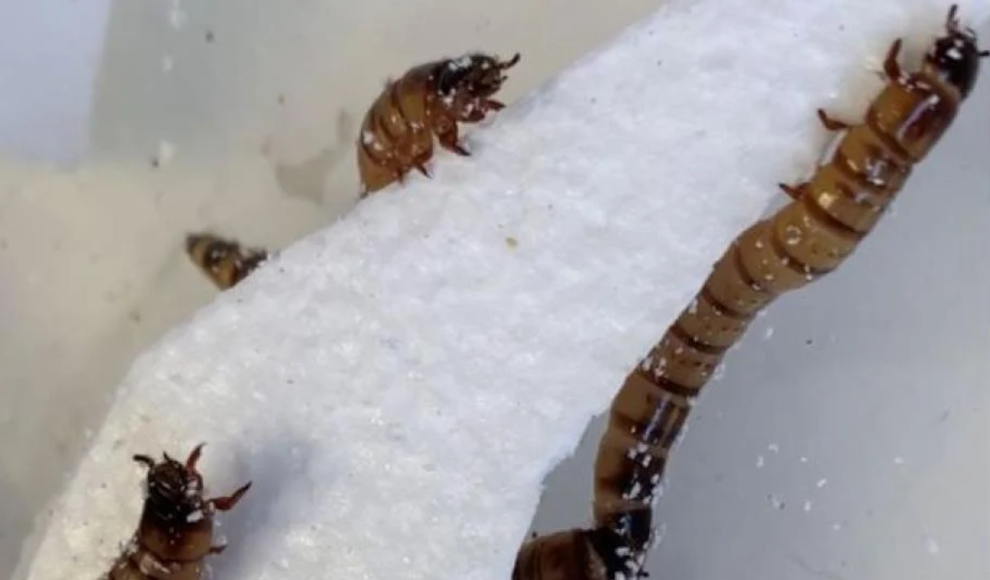In a world where plastic waste is a growing concern, scientists at the University of Queensland may have found a solution in the form of black soldier fly larvae. These larvae have been found to consume polystyrene, a type of plastic that is notoriously difficult to recycle. Polystyrene is commonly used in products such as plastic cutlery and packaging materials, and its inability to be recycled means that a significant amount of plastic waste ends up in the environment. However, the black soldier fly larvae have shown promise in breaking down this type of plastic.
The larvae were found to consume both polystyrene foam (commonly known as Styrofoam) and plastic waste, and even gained weight in the process. The researchers hypothesized that adult worms, which can grow up to five centimeters in length, would be even more effective at breaking down polystyrene. To test this theory, the worms were fed a variety of materials, including Styrofoam, for three weeks. The worms were able to survive on a diet of pure polystyrene thanks to their efficient, genetically-encoded enzymes. However, the researchers noted that the worms experienced a loss of microbes in their bodies due to their specialized diet, indicating that polystyrene is not a nutritious food source.
While the black soldier fly larvae show promise in breaking down polystyrene, it is important to note that this is not a complete solution to the plastic waste problem. The researchers suggest that a parallel diet of food waste could help to mitigate the negative effects of a polystyrene-only diet. Nonetheless, this discovery is a step in the right direction towards finding sustainable solutions to the plastic waste crisis.










